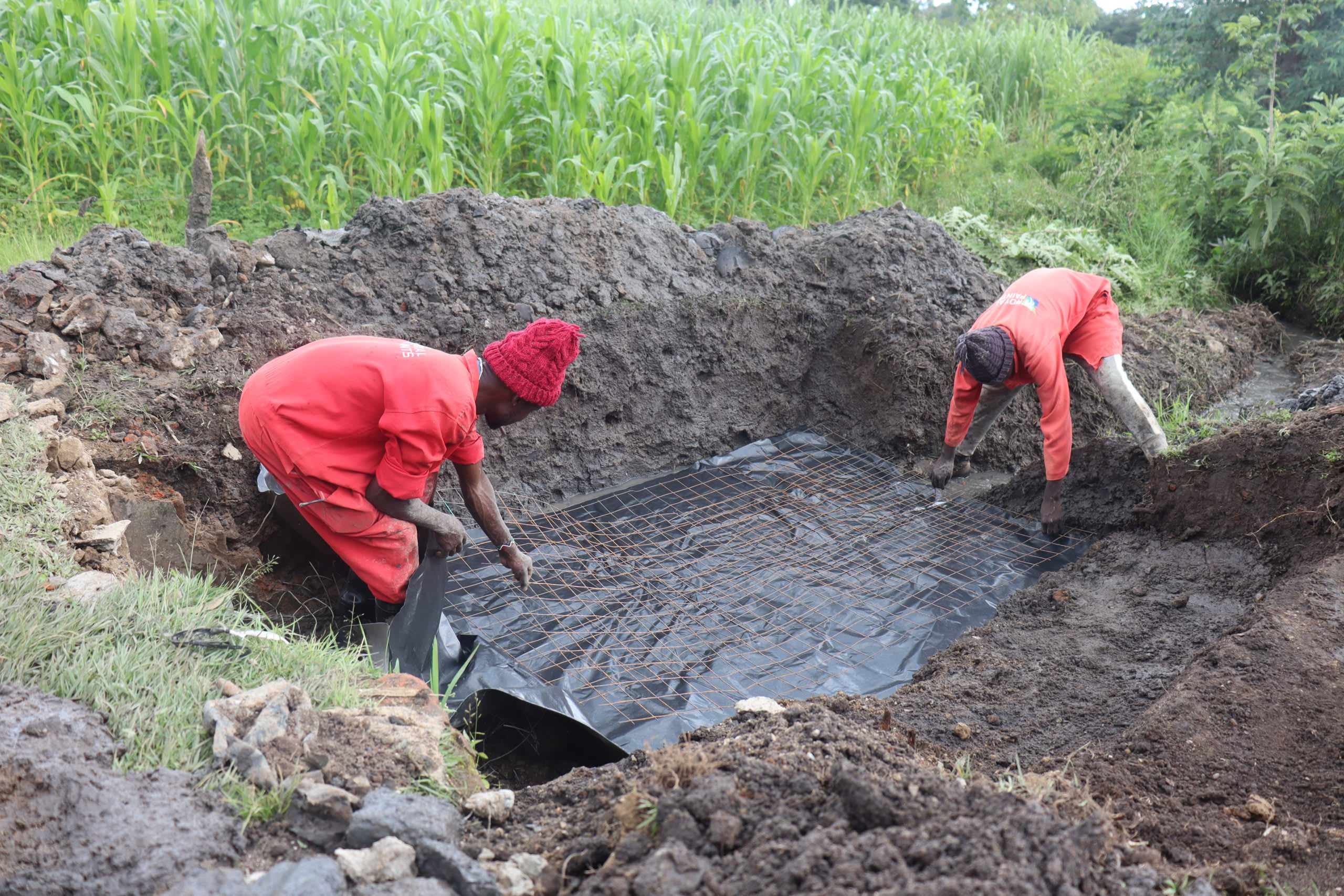The 140 residents of Bwanga struggle to access sufficient water because their naturally flowing Alfayo Matayo Spring is in disrepair. The spring is difficult to access safely and has a low flow rate, leading to long lines that hinder the community's progress.

"The spring is completely worn out and in need of overall repairs. The spring needs fencing to control animals that are grazing near the spring [and] interfering with the backfill area," shared Field Officer Mitchelle Ijaza.
Because the spring needs to be repaired, the output of the discharge pipe is low, especially during the dry season. This means community members wait in long lines and give up valuable time they could spend improving their lives and providing for their families.
42-year-old entrepreneur Silcah Sylas Matayo shared her experience.

Silcah.
"Retrieving water from the water source has been difficult because of long queues. It has also reduced economic activity since there is limited water and time to fetch water for use in agricultural practices. We are forced to prioritize other important activities like cooking, washing utensils, bathing, and washing clothes," continued Silcah.

"The longest amount of time I've spent waiting for water was 45 minutes, and this was when we had [a] low amount of water with long queues," she continued.
Adults like Silcah are sacrificing their livelihoods, which means less income for their families. She has to watch her children sacrifice their educations, but without access to clean, safe water, they will stay stuck in this cycle.

Children on the way to the spring.
Silcah described how protecting their community spring would change her life.
"My family will have access to a reliable source of clean water. My children will be able to fetch water on time so that they can focus on their studies and do their assignments on time."

"A rehabilitated water point will promote environmental sustainability by minimizing degradation and reducing contamination. It will also boost economic activities by creating opportunities such as local agricultural practices and entrepreneurship," continued Mitchelle.
Steps Toward a Solution
Our technical experts worked with the local community to identify the most effective solution to their water crisis. They decided to safeguard the existing flowing spring.
Spring Protection
Springs are natural water sources that originate from deep underground. As water travels through various layers of the earth, it undergoes a natural filtration process, making it cleaner and safer to drink. To protect these spring sources from contamination, we construct a waterproof cement structure around layers of clay, stone, and soil. This design channels the spring water through a discharge pipe, facilitating easier, faster, and cleaner water collection.
Chlorine Dispenser
As an extra measure towards water quality safety, uniquely engineered chlorine dispensers are installed at all of our spring protection projects so community members can treat their water with pre-measured doses of chlorine. The chlorine treats any residual contamination and stays active for two to three days, ensuring water stays safe to use even when stored at home. Chlorine delivery and maintenance of the dispensers are part of our ongoing community support.
Community Education & Ownership
Hygiene and sanitation training are integral to our water projects. Training is tailored to each community's specific needs and includes key topics such as proper water handling, improved hygiene practices, disease transmission prevention, and care of the new water point. Safe water and improved hygiene habits foster a healthier future for everyone in the community. Encouraged and supported by the guidance of our team, a water user committee representative of the community's diverse members assumes responsibility for maintaining the water point, often gathering fees to ensure its upkeep.

 Protected Spring
Protected Spring
 Rehabilitation Project
Rehabilitation Project

















